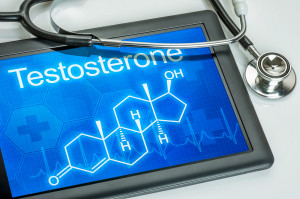
11 Signs of Low Testosterone
Check out these informative slides from CBS news on the Warning Signs of Low Testosterone.
“Guys like to make jokes about testosterone, but testosterone deficiency is no laughing matter. The latest research suggests that guys without enough of the hormone face a higher risk of several serious conditions including diabetes, osteoporosis, and cardiovascular disease.
A simple blood test can reveal whether a guy has low “T,” but there are plenty of other clues that a problem exists, as you’ll see.
Low Sex Drive
Testosterone is what fuels a man’s sex drive. If he’s low on “T,” he’s likely to become less interested in having sex. “Testosterone is what’s responsible for ‘the grrr factor,'” says Dr. Abraham Morgentaler, associate clinical professor of medicine at Harvard Medical School and the author of “Testosterone for Life.” He says men differ in how frequently they like to have sex. But for men with low testosterone, he says, “It’s completely absent.”
Erectile Dysfunction
Erections are triggered by the body’s release of a tiny molecule called nitric oxide. But testosterone is what’s needed to trigger this release, and if there’s not enough of it, well, nothing much happens down below. Either erections are impossible, or they’re not firm enough for intercourse.
Low Fluid Level
Three parts of a man’s body work together to produce the sperm-containing fluid that’s released when he ejaculates: the prostate, the seminal vesicles and the testicles. Each of these parts needs a good supply of testosterone to produce a normal ejaculatory volume of 1.5 to 5 cubic centimeters. A man with waning testosterone may notice a sharp decline in his “volume.”
Genital Numbness
Guys with low testosterone often complain of feeling numb down below. They may not be completely numb, but a touch of the penis or scrotum fails to elicit that feeling of “electricity” needed to spark sexual encounters – and make sex so pleasurable. Says Dr. Abraham Morgentaler, associate clinical professor of medicine at Harvard Medical School and the author of “Testosterone for Life,” touching the area “just feels wrong to them.”
Fatigue
It’s perfectly normal to feel tired at the end of a busy day. But guys with low “T” feel completely depleted. These guys complain of being more tired than they think they ought to be. “My tank is empty,” is how some guys put it.
Decreased Energy
In addition to feeling severe fatigue, guys with low testosterone often lose their drive and initiative. Guys who used to be up and at ’em all day long are sidelined on the sofa.
Mood Problems
Even if they’re not experiencing clinical depression, men with low testosterone often feel down or blue. They feel less optimistic than they used to feel.
Irritability
Low testosterone can cause guys to be grouchy and irritable. Sometimes the problem is more apparent to friends, family members and colleagues – than to the men themselves. “A guy might say he’s fine,” says Dr. Abraham Morgentaler, associate clinical professor of medicine at Harvard Medical School and the author of “Testosterone for Life,” but the people around him know otherwise.
Reduced Muscle Mass
It’s not like they become weaklings, but guys with low testosterone often feel that they’re not as strong as they once were. Some men actually notice shrinkage in their arm and leg muscles, and in their chest. And if they try to build muscles with weight-lifting, they often find it frustratingly difficult to build muscle mass.
More Body Fat
Low testosterone often results not only in reduced muscle mass, but also in increased body fat. Some guys add weight around the middle. Others develop gynecomastia, a.k.a “man boobs.”
Shrinkage
Checked your testicles lately? Low testosterone can cause them to shrink a bit and feel softer than normal.”
Click the link below to read the article on cbsnews.com
Read More
CLICK HERE to schedule a consultation!


